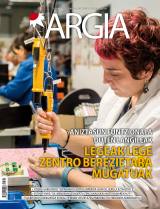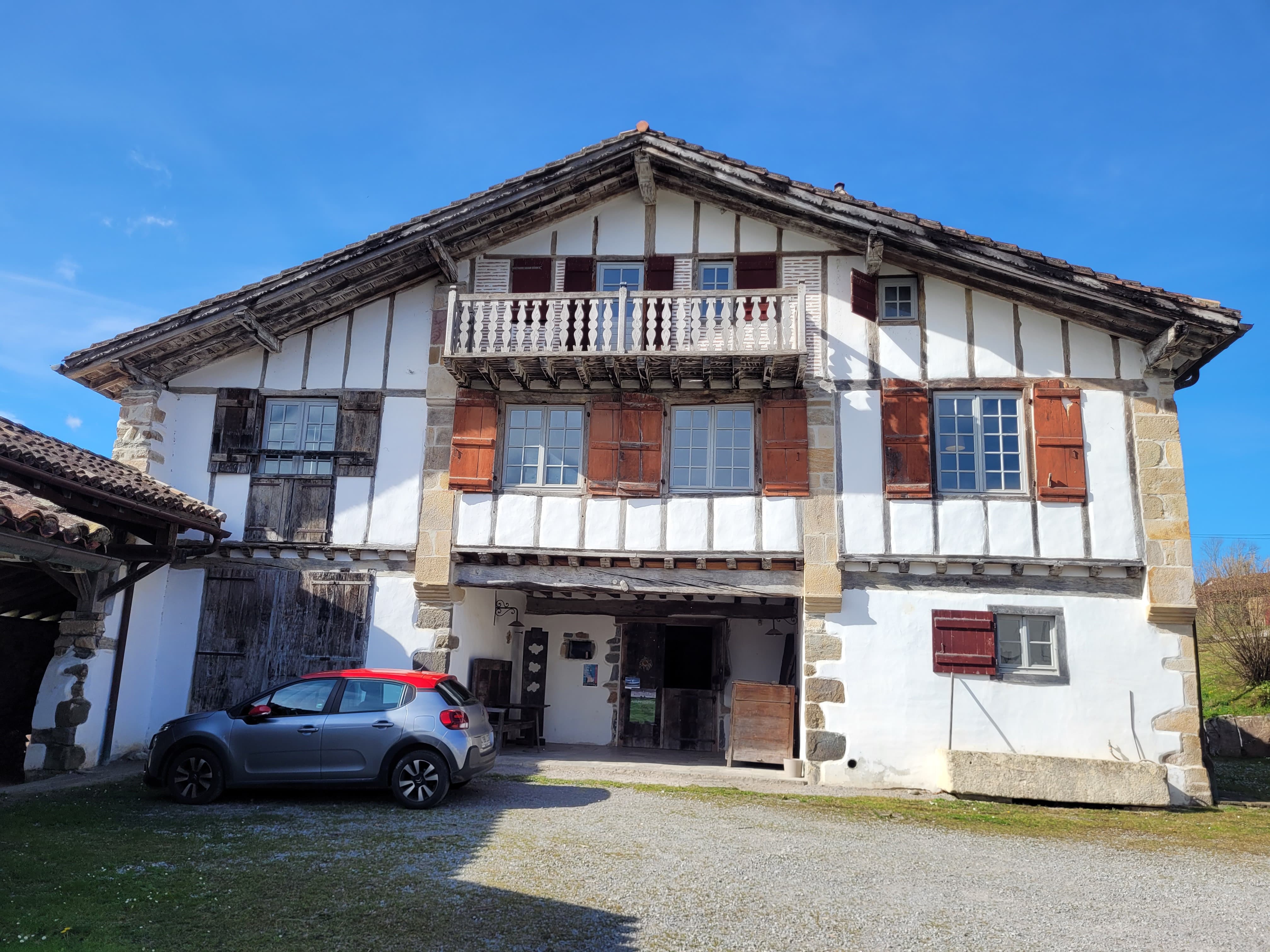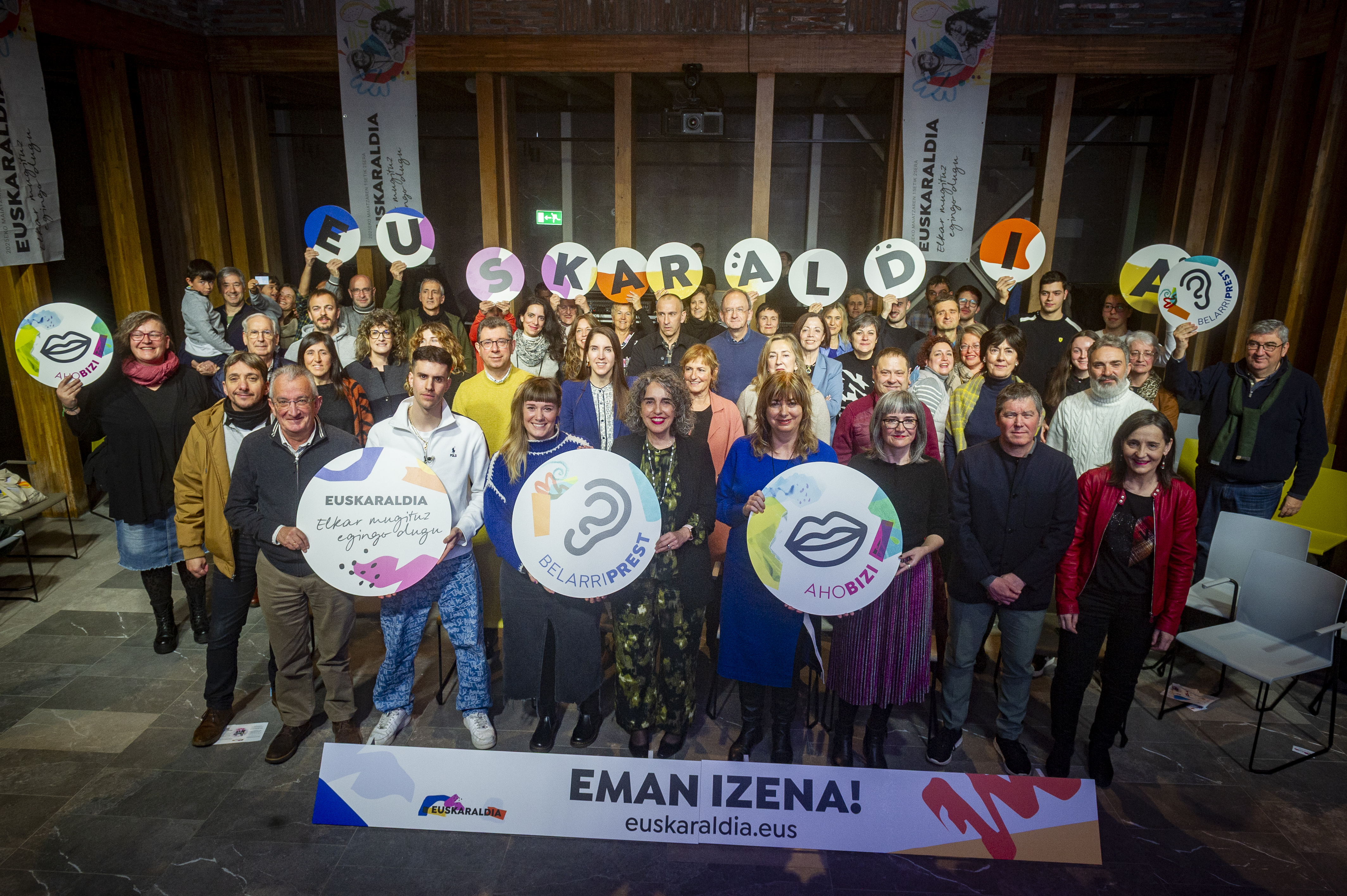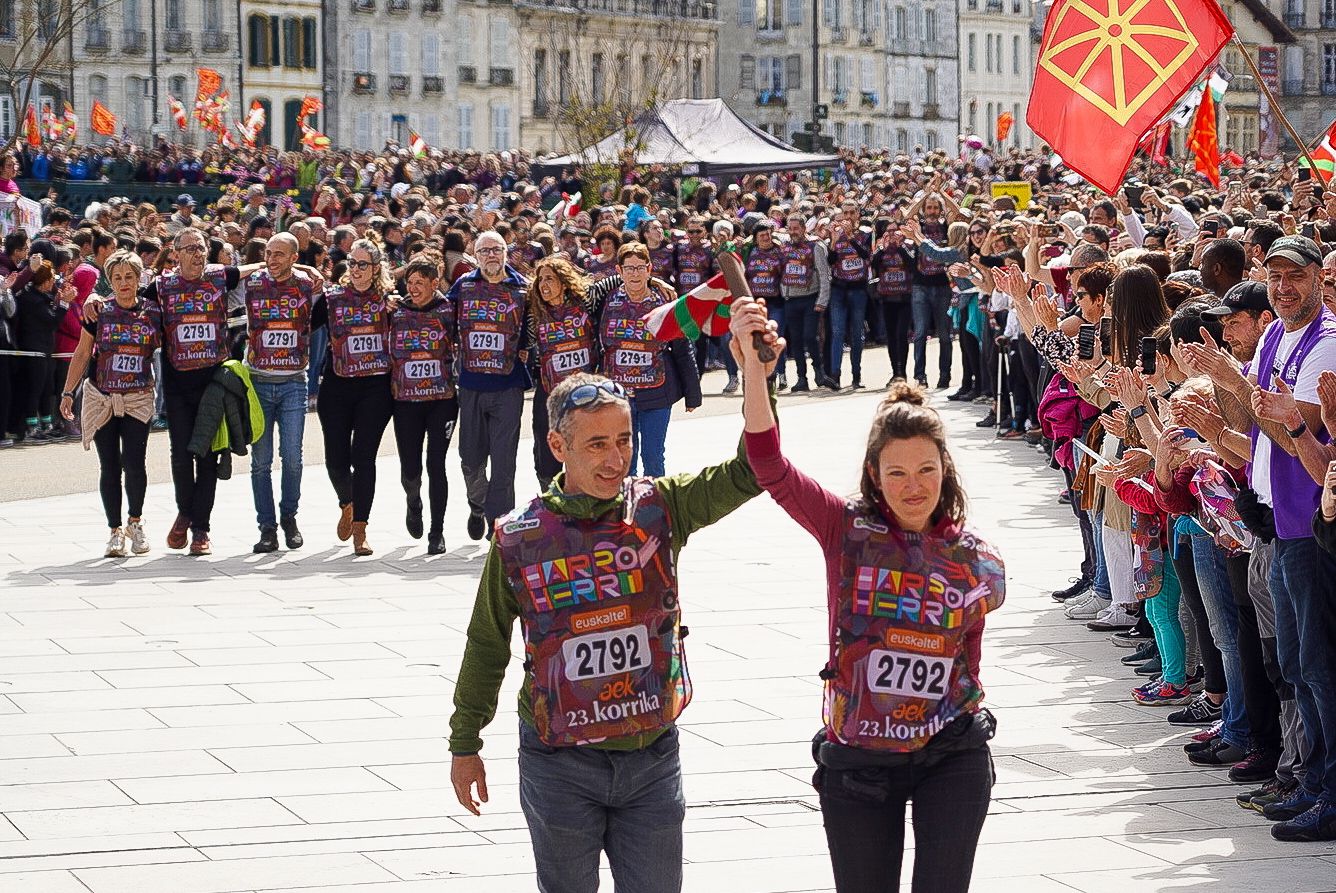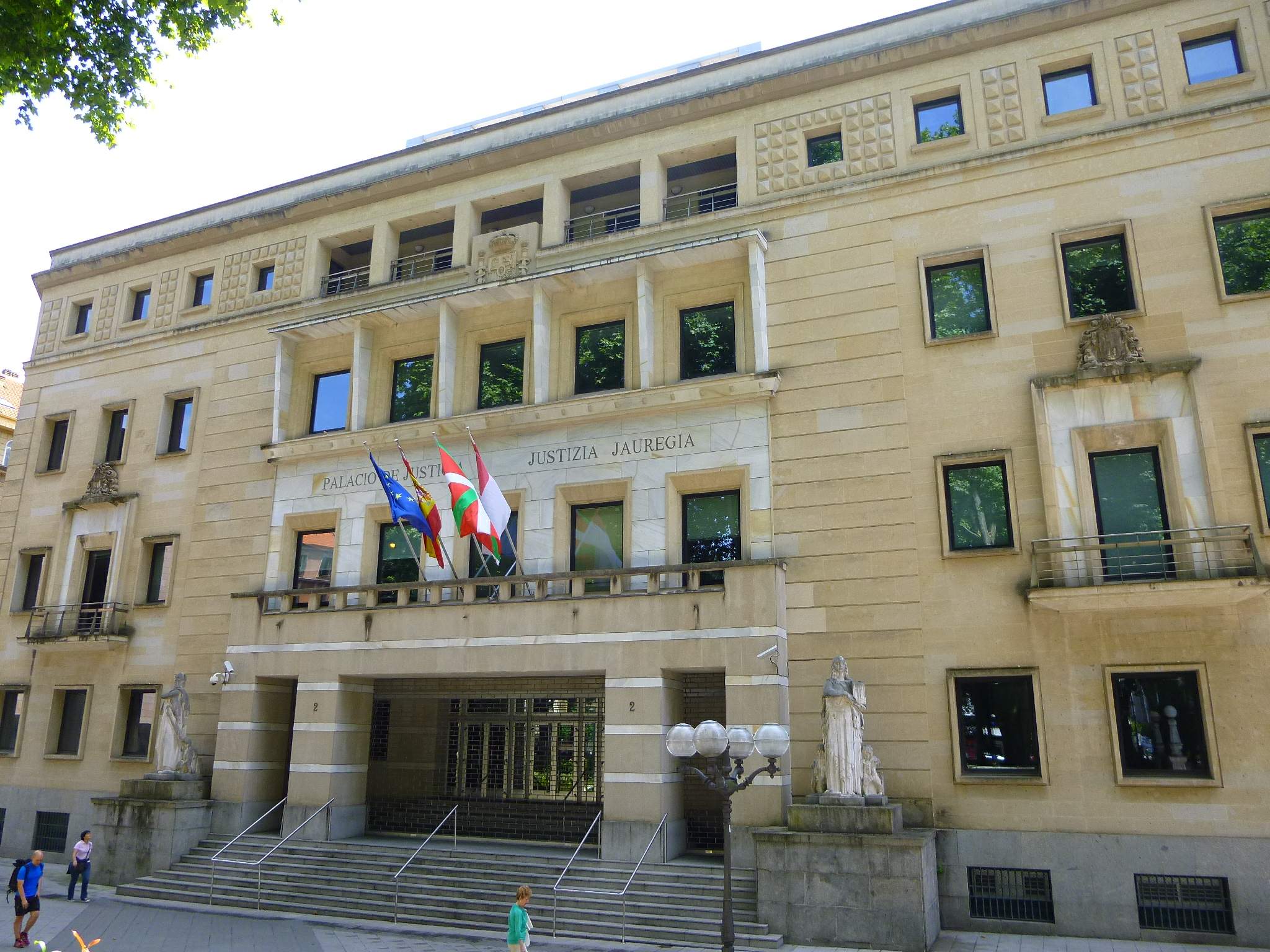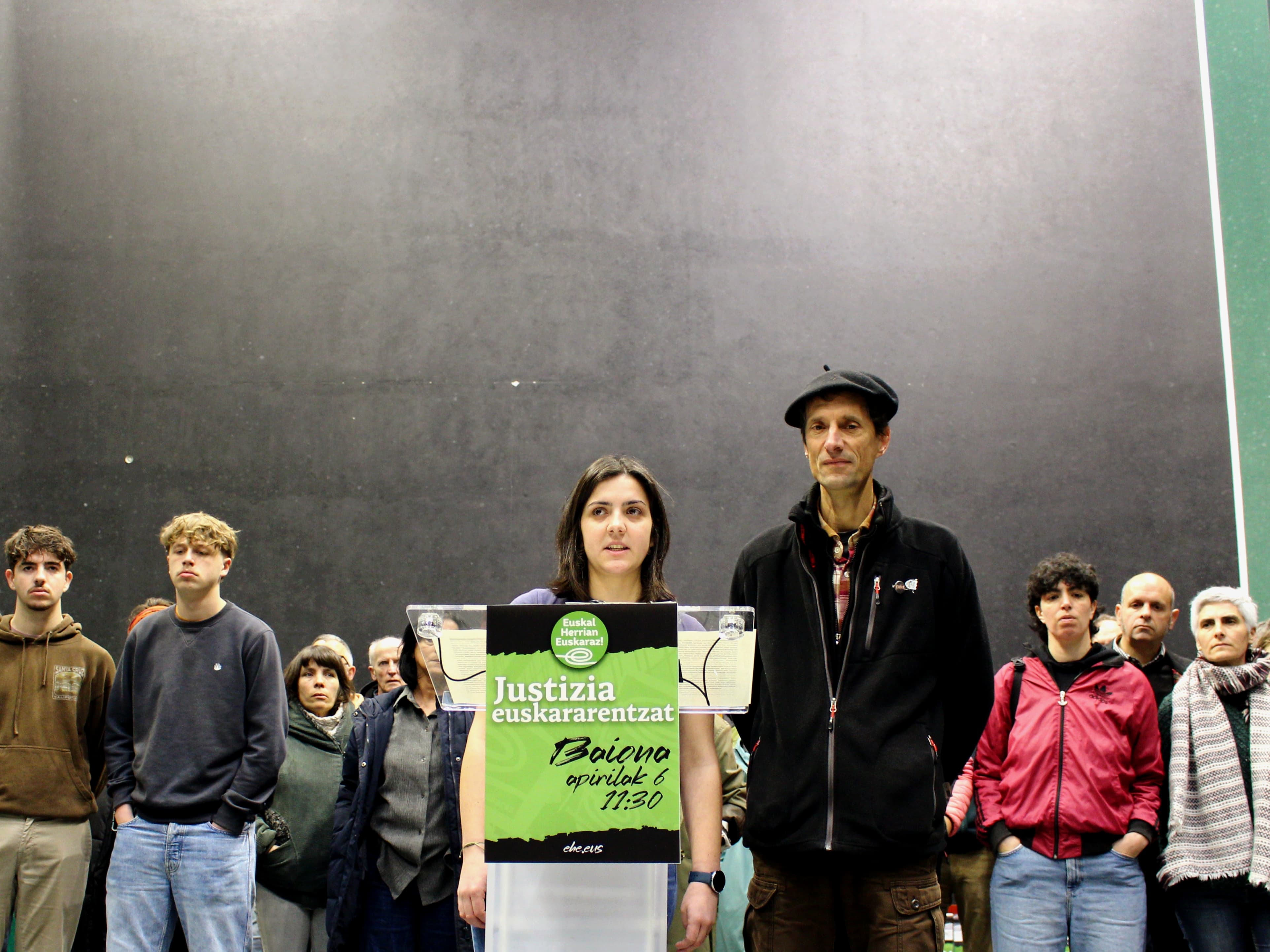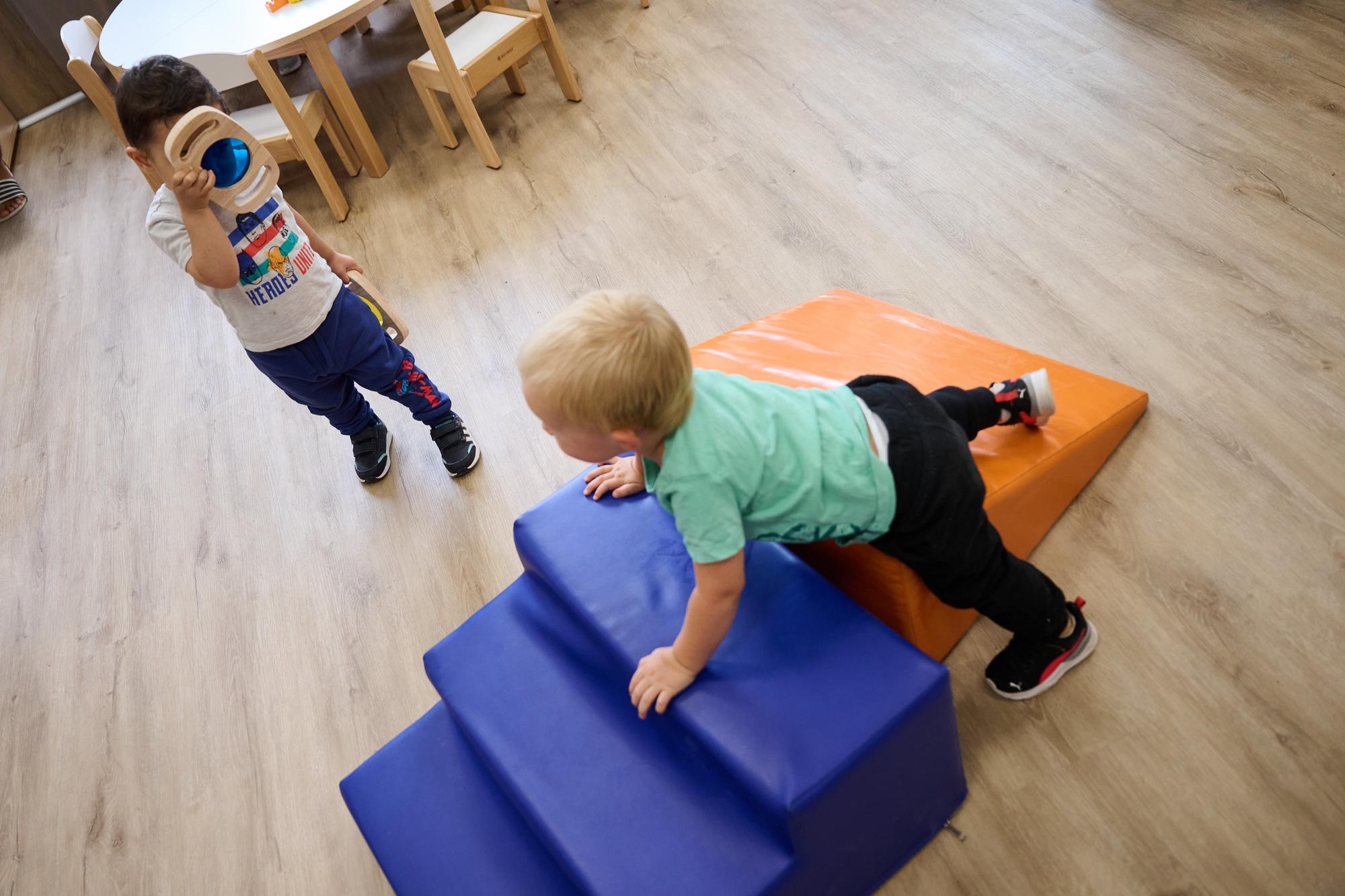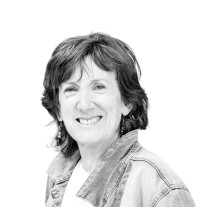"I'm particularly interested in how the speakers build the informal Basque in Bilbao"
- Hanna Lantto (Iisalmi, Finland, 1981) lives in Helsinki, but almost every year he comes to Euskal Herria and passes between us two and three months. His curiosity for the Basque Country dates back to the year 2000, and then came knowledge, use and research. As an observer of the linguistic habits of Euskaldunes, two years ago he conducted a doctoral thesis on Euskañol and is currently studying the process of making new speakers active.

How did you start to learn Basque, and how has your career in Basque been?
He studied Hispanic philology in Helsinki in 2000. My professor knew Euskera and in the first year he gave us a small course. He had special methods because he made us learn by heart to Our Father. Without understanding it, I liked the sound of Euskera. I already had knowledge of the Basque country, since in Finland the exam of access to university requires a learning of linguistics, since in the course in which the Basque language appeared it is an island and has interesting structures.
By then it was already a polyglot. How many languages do you know?
I have a basic knowledge of many languages, but I master nine. However, not all are activated at the same time. For example, I've done the C2 Portuguese test, but now I need a warming up so I can talk to someone. Now I use five languages a day: Spanish, Basque, English... In my house, I use the suomie and the Estonian, because my husband is Estonian.
What drew you to get closer to the Basque?
I liked the sound, the phonology, and especially the construction, the auxiliary verb system, the ergative. There are some words and names I like: baserritarra, Larrabasterra... I have always been interested in minority languages, in my first year of university I learned the languages of Uralde and the Basque language, as they are, is not Indo-European.
The Finnish is not Indo-European either, but it is not alone.
Yes, it belongs to the group of Uraldarras languages, Suohand or Finnish, Estonian and Hungarian are the best known, but in Russia there are many Uraldarras languages. The Samian languages of Lapland also belong to this family.
He studied the switching code or Euskañol of the Basques of Bilbao in his doctoral thesis.
There are many classifications and there are debates about alternating code to know whether it should have pragmatic functions or not. For me, the concept is broad, perhaps I cannot justify it scientifically, but I am more interested in what happens in the language than those terminological debates, for example, the elements that Spanish bilbaínos use. The bookmarks of the discourse are almost always in Spanish: eske, aber, osea... because Castilian is pragmatically the dominant language. Some say that's not a code alternation, but ... Vulgar and raw words are also used in Spanish.
Did you compare in your thesis the Euskañols of Arratia and Bilboaldea?
No, I compared Euskaldunzaharras with Euskaldunberris. I realized that the Basques of Arratia made more code switching. Many of the Euskaldunzaharras living in Bilbao are not of Bahraini origin, and in Bilbao they use the switching code more than the Euskaldunberris. The new speakers, on the contrary, distinguish more between when they speak Spanish and when in Basque. Unlike the old ones, you may think that if you use Euskañol, people will think they don't know Euskera well. The old speakers feel the authority of the language, which, even if they do an alternation of code, no one will question their Basque status.
Is switching code an indicator of something in the context of diglosia?
In normal situations, code alternation becomes a lot more. Perhaps it is a sign of the superiority of Castilian, because at the end of the day in Bilbao people make Basque when speaking Basque. The informal Basque is bilingual, while the informal Spanish is monolingual. In some places more Euskaldunes I have heard the alternation of code when people speak Basque in Spanish.
Now you have another research in your hands, along with other researchers.
I can't get you through that much, but we want to investigate how people become an active speaker. For example, many friends learn in the Basque Country and then do not use it, but others do. We are interested in how some take this step, how they go from being students to being active users, what processes and consequences they have had. I am particularly interested in how the speakers, especially those who have learned the batua, build the informal Basque country of Bilbao, make an alternation of code, use the Biscayan…
How many of us are you taking as a research center, why?
It was one of the spaces that the group had previously thought about and I thought it was a very suitable place to investigate. I knew the Kafe Antzokia since my Erasmus era, by concerts and by the Basque environment, but I did not know everything behind it: Gabriel Aresti Euskaltegia, radio, editorial... It is located in Bilbao and integrates the students very well. The Basque people, very old or very new, are offered the world of Euskera, the active ones.
“Askotan arau sozialak apurtzen ditut, nahi gabe. Adibidez, finlandiarrok oso eroso gaude isiltasunean, ez dugu sentitzen une isilak betetzeko beharrik. Nire Euskal Herriko lagunak batzuetan urduri jartzen dira horregatik. Gogoan dut gau batean lagun batekin etxerantz gindoazela. Ni nire artean pentsatzen ze pozik nengoen, ze polita zen gaua, zelako lasaitasuna inguruan... Eta lagunak bat-batean: ‘Baina zer duzu? Oso nekatuta zaude ala? Zergatik ez duzu hitz egiten?’. Behin baino gehiagotan gertatu zaizkit antzeko gauzak”.
Euskalgintzak Senpereko Larraldea etxea faltan botako du. Uda gabe, Bertsularien lagunak, bertan gelditzen den azken elkarteak, lekuz aldatuko du eta etxea hetsiko dute. Euskararen, euskal kulturaren eta arteen ohantzea izan da Larraldea, urte luzetan Andoni Iturrioz mezenasak... [+]
Badakizuenok badakizue, beste gauza asko bezala, euskararen aldeko borrokan ere politikoek, eragile batzuek eta hedabideek beraien antzezlana saldu nahi digutela, benetakoa balitz bezala.
Lehen urtean pozik jaso nuen, "Euskaraldi" hau. Zer edo zer zen, ezer ez zegoela... [+]
Euskarak, mendez mende, zapalkuntza sistematikoa jasan du, eta oraindik ere borrokan dabil egunerokoan bere leku duina aldarrikatzeko. Hizkuntza baten desagerpena ez da inoiz berez gertatzen; planifikazio politiko eta sozialak eragiten du zuzenean. Euskaldunoi ukatu egin izan... [+]
Oldarraldia ari du EAEko administrazioa euskalduntzeko erabakien aurka, berriz ere, enegarren aldiz. Oraingoan berrikuntza eta guzti, espainiar epaitegiak eta alderdi eta sindikatu antieuskaldunak elkarlanean ari baitira. Ez dira izan akats tekniko-juridikoak zuzentzeko asmoz... [+]
Horra Libération egunkariak berriki argitaratu duen idazkia:
“Bayonne” bukatu da, Libérationek “Baiona” idatziko du
Hiri baten izenaren erabilpena ohiturazkoa delarik, egunkari batean izen horren erabilpena aldatzea zaila da. Alta, irakurleen... [+]
Gasteizen egin duten ekitaldian ireki dute izen ematea, laugarren edizioa hasteko bi hilabete falta direla. Erakundeetako ordezkariak, herritarrak eta entitateetako kideak agertu dira, besteak beste. Euskaraldiaren koordinazioa Euskal Herriko erakunde publikoen eta Taupa... [+]
Korrikaren "bihotza eta burua" erakutsiko ditu dokumentalak. Proiektua gauzatzeko, herritarren babesa "ezinbestekoa" izango dela adierazi dute AEK eta Mirokutana ekoiztetxeak, eta apirilaren 25era bitartean crowdfunding kanpaina bat abiatuko dute jalgihadi.eus... [+]
Azken asteetan zenbait unibertsitatetako ate irekien jardunaldietara joateko aukera izan dut. Semea aztertzen ari da zer ikasiko duen datozen urteotan eta, erabakia hartu aurretik, komeni da aukera guztiak begiratzea. Unibertsitate bakoitzak badu bere misioa, bere izaera, bere... [+]
Ez dira gutxi azken boladan euskara bere onenean ez dagoela eta bere transmisioa bermatuta ez dagoela ohartarazten ari diren ahotsak. Bestetik, inork ez du ukatzen hezkuntzak ezinbesteko betebeharra duenik euskara eta euskal kulturaren biziraupenerako. Erronka estrategikoa... [+]
Ba al dakizue frantses batzuk harritu egiten direla mugaren alde honetan ere euskaldunak bagaudela jakitean? Ba bai, harrigarria bada ere, behin, Donostian, frantses batzuei entzun nien sinetsi ezinik beren buruari galdetzen: “Saint-Sébastien est au Pays... [+]
Gasteizko 1 zenbakiko Auzitegi Kontentzioso-Administratiboak emandako epaia berretsi du EAEko Justizia Auzitegi Nagusiak. Lan poltsan parte hartzeko euskara maila altuenaren baliokide diren 3. eta 4. eskakizunak indargabetu zituen Gasteizko Auzitegiak.
25 bat eragilek adierazi diete elkartasuna apirilaren 11n Baionako auzitegian epaituko dituzten Intza Gurrutxaga eta Gorka Torre Euskal Herrian Euskaraz taldeko kideei. Egun batzuk lehenago, apirilaren 6an Baionan eginen den manifestazioan parte hartzeko deia ere luzatu dute.
Iruñeko haur eskoletako zuzendariek, EH Bildu, Geroa Bai, Zurekin Nafarroa eta PSNren arteko akordioa kritikatu dute. “Murgiltze ereduaren alde egin dugu beti, baina inoiz ez da gure iritzia kontutan hartzen” salatu du Euskalerria Irratian, Garikoitz Torregrosa... [+]
Harrera-herri euskaldun nola izan gaitezkeen galdetu zion Leire Amenabarrek bere buruari eta parean zituenei iaz, Gasteizen, harrera-hizkuntzari buruzko jardunaldietan, eta galdera horrexetan sakontzeko elkartu gara berarekin hilabete batzuk geroago. Amenabarrek argi du... [+]
Lagun asko sumatu dut kezkatuta euskaldun gero eta gutxiagok ahoskatzen duelako elle-a. Haur eta gazte gehienek bezala, heldu askok ere galdu du hots hori ahoskatzeko gaitasuna, idatzian ere nahasteraino. Paretan itsatsitako kartel batean irakurri berri dugu: altxorraren biya... [+]









